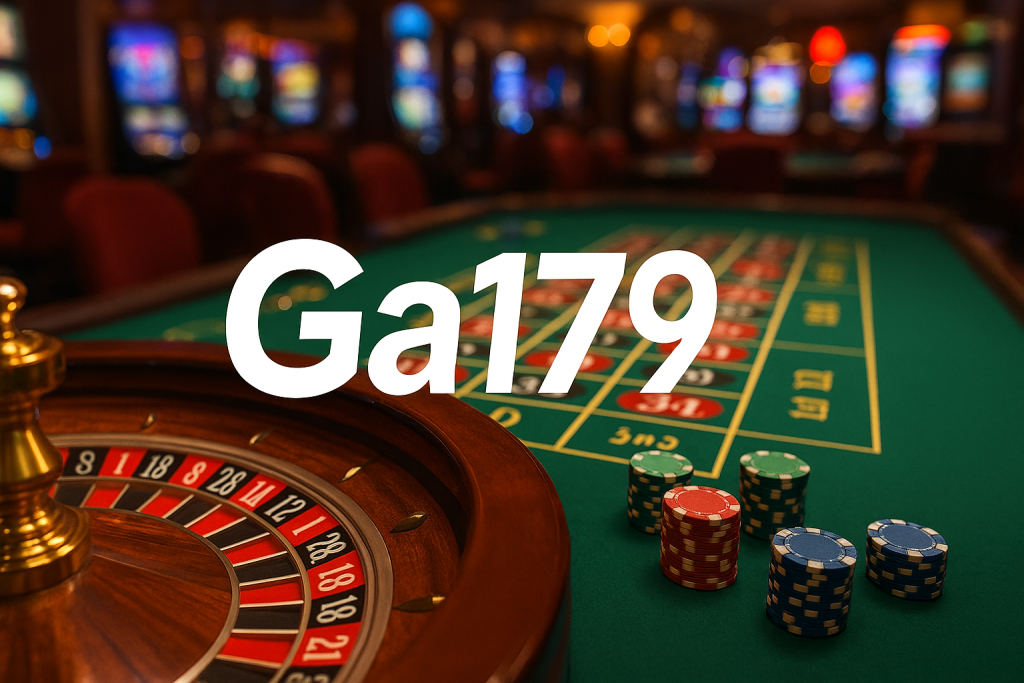
Gambling is much more than just chance—it’s a fascinating psychological experience that casinos understand deeply. Online platforms like https://Ga179.com/ leverage insights into player behavior to create environments that are both thrilling and engaging, keeping players coming back for more.
At its core, gambling taps into human psychology by triggering the brain’s reward system. When a player wins, the brain releases dopamine, a neurotransmitter associated with pleasure and motivation. This feel-good chemical encourages players to continue gambling in hopes of experiencing that rewarding sensation again.
One of the key psychological mechanisms at play is the “near miss.” This occurs when a player’s spin or card draw comes close to a win but ultimately falls short. Research shows that near misses can stimulate the brain similarly to actual wins, increasing the desire to keep playing despite losing. Casinos design games to include frequent near misses to maximize player engagement.
Variable reward schedules are another powerful psychological tool. Unlike fixed rewards, where players receive consistent outcomes, variable rewards are unpredictable. Slot machines, for example, provide wins at irregular intervals. This unpredictability creates excitement and anticipation, making it more addictive and encouraging longer play sessions.
Casinos also use sensory stimuli to enhance the gambling experience. Bright lights, sounds of coins dropping, and celebratory music create an immersive environment that stimulates the senses. These effects not only increase excitement but also distract players from the passage of time and their losses.
Online casinos likeeplicate these sensory experiences digitally through sound effects, animations, and graphics designed to keep players engaged. The interface is carefully crafted to be visually appealing and intuitive, reducing frustration and encouraging continued play.
Social factors also influence gambling behavior. The presence of other players, dealers, or chat functions in live casino games fosters a sense of community and competition. This social interaction can increase player motivation and enjoyment, making the experience more immersive and rewarding.
Casinos understand the importance of providing players with a sense of control. Many games offer options to adjust bets, choose game modes, or set autoplay functions. Giving players choices enhances their feeling of agency, which can increase satisfaction and the likelihood of repeat play.
The design of loyalty programs and bonuses also plays into psychological principles. Rewarding players with bonuses and points creates positive reinforcement, encouraging them to return frequently. These incentives tap into the human desire for recognition and achievement.
While casinos use these psychological insights to enhance the player experience, it is essential for players to remain mindful of their gambling habits. Understanding the psychological tricks at play can help individuals make informed decisions and avoid problematic behavior.
Responsible gambling tools, such as deposit limits, self-exclusion options, and reality checks, are increasingly integrated into online platforms like These features empower players to maintain control over their gaming activity and promote safe gambling practices.
In conclusion, the psychology behind gambling is complex and multifaceted, involving brain chemistry, sensory input, social dynamics, and behavioral reinforcement. Casinos skillfully use this knowledge to design captivating games and experiences. Platforms like combine these elements with technology to offer engaging and responsible gaming environments. Awareness of these psychological factors can help players enjoy gambling as a form of entertainment while maintaining healthy habits.